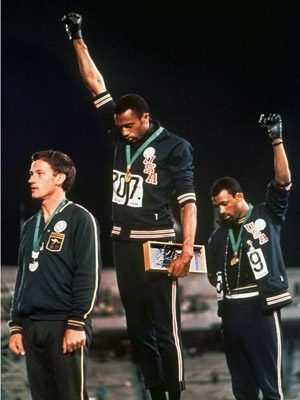(THIS ARTICLE IS MACHINE TRANSLATED by Google from Norwegian)
[11. April] Large parts of the world have followed the fate of the Olympic fire in recent days. The protests when the fire was carried through London. Extinguishing the fire as the torch relay on Monday tried to get through Paris. And then the symbolic route through San Francisco's "Chinatown" on Wednesday.
In sum, the torch relay for the Beijing Olympics has proven not to live up to its own motto, "The Harmony Journey". The successful protests – mainly from Tibetan sympathizers, but also from conservationists and Falun Gong adherents – have managed to put human rights on the agenda more than the communist regime in China could have feared in advance. From Japan via Australia to South Africa, France and the United States, there is now debate over whether all or part of the Olympic Games in August should be boycotted.
And even those who do not choose to boycott the torch relay – as India's football captain Baichung Bhutia has done – may have thoughtful thoughts about their participation. Bollywood star and future torchbearer Aamir Khan writes, for example, on his blog that "the Olympics do not belong to China" and that he carries the fire through New Delhi on April 17 "with a prayer in my heart for the people of Tibet and for all the people around the world that is a victim of human rights violations ». With actor Khan's statement, sports, culture and social consciousness merge into a higher unity.
In such a perspective, the statements made by some Norwegian community supporters seem remarkably simple. As when Prime Minister Jens Stoltenberg during the Nordic Prime Minister's meeting on Tuesday rejected any boycott as "out of date" on the following grounds: "Norway has a long tradition of having a very high threshold for using boycotts."
But what kind of argument and tradition is that? Is there a reference to Norway's lack of boycott of Adolf Hitler's Berlin Olympics in 1936? A Nazi-infected Olympics which, by the way, introduced the idea of a torch relay, in that the fire was then carried from Athens to Berlin. Or is Stoltenberg's historical argument a reference to the Montreal Olympics in 1976, where 22 countries – such as Iraq, but most African as the initiator of the Congo – boycotted the Summer Games due to the Olympic Committee's (IOC) acceptance of the apartheid regime South Africa, even after Soweto the uprising. Who in Norway said anything then, even though far more were killed than under Tibet? In 1976, Taiwan also boycotted the Olympics, since the island was for the first time refused to participate under the name "Republic of China". But Norway did not react to this either. Is this part of Norway's "long tradition" of showing that the country has "a very high threshold for using a boycott"?
Minister of Finance Kristin Halvorsen's openness to take part in the Olympic debate has served the government well. The Norwegian Prime Minister's exclusion of absence from the opening ceremony in Beijing on 8 August has, on the other hand, in a global perspective proved remarkably unreasonable, social democratic and dynamic.
On Wednesday night, the British Prime Minister Gordon Brown announced that he would boycott the opening, as France's Nikolas Sarkozy had indicated that he considered. And Hillary Clinton, like leading Republican politicians, has also argued that George W. Bush should stay away from the opening ceremony. Now it is probably not primarily the Tibetans' rights that Brown, Sarkozy & co have in mind with their boycott proposals and competitions to be first out. Mostly, this simple symbolic policy is political internal medicine, to show domestic political action. At the same time, a large part of the boycott talk fits well into the discussion on how to curb the growing Chinese economic success.
In addition, we are now in danger of going on another "Burma stunt": Like in September last year when Norway stood on its head for one day for the monks in Burma, but then forgot everything the day and the weeks after. This is also the problem with all of today's boycott talk after the visual protests from Tibet sympathizers. The China Olympics are also in danger of becoming a one-off stunt for human rights.
So where do we stand after new rounds of boycott discussions? It is obvious that politics and international human rights also belong in sport, as it does in the economy, culture and transnational conditions in general. The Beijing Olympics are such an excellent opportunity to address the situation in China, which has obviously improved significantly since the days of dictator Mao. It is first and foremost the many human rights activists in China that we should help and support, something Ny Tid tried to do last week by letting the Tibetan author Tsering Woeser speak.
But a boycott is not always the best thing, as both Amnesty International and the Dalai Lama have pointed out. Rather, absenteeism seems to be the easiest and most harmless way to go. Then it is more courageous and more effective to demonstrate to the whole world in the cave of the lion, possibly the dragon. As medal winners Tommie Smith and John Carlos did by showing the Black Panther greeting during the 1968 US National Anthem play.
It is action we need, not non-action.


